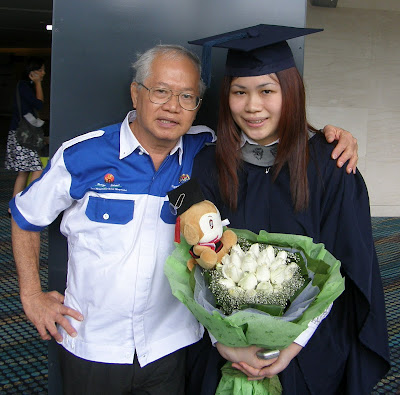In Wat That Thong, one of the more famous temples in Bangkok, it is this story that retired Thai generals, who came to pay their respects to Chin Peng this afternoon, will remember him by.
Through signing the Hatyai Peace Agreement of 1989, Kitti said, Chin Peng "played a key role in maintaining peace" along the Thai-Malaysian border.
"He fought for the independence of his country, just like (Vietnam leader) Ho Chi Minh, but he did not succeed.
"It is proper to allow his ashes to be returned to Malaysia. Forgive and forget, let bygones be bygones. Once someone dies, everything is finished," Kitti told members of the media.
As a former military man who led troops against the CPM guerillas, he said, he viewed Chin Peng - who spent a third of his life in exile in Thailand - as an elder brother.
"(The Malaysian position) is just politics. When a peace agreement is signed, there is no longer animosity," Kitti said, stressing that this was his personal view and not that of the Thai government.
Forgiveness the only solution
As the first Thai army officer to broker talks with Chin Peng in August 1973, Akanit said he made the decision to do after losing many of his men.
"I was a captain then and in one year, I lost 50 soldiers - 30 died and 20 were wounded. I got malaria 13 times from going in and out of the jungle.
The princess' wreath was just one of many in memory of Chin Peng today.
Among them was a wreath of yellow flowers from his children, with a message simply reading: "In loving memory of our dear father."
Of the 50-odd family members and friends who came to the quiet and sombre affair today, many were seen in tears.
According to Anas Abdullah, a family friend who helped arrange the wake and funeral, more than 100 former CPM guerilla fighters are expected to pay their respects in the next two days, before Chin Peng's body is cremated on Monday.
The son of a CPM leader and the son-in-law of one of the oldest surviving Malay CPM members Abdullah CD, Anas said his father-in-law was not able to make the 10-hour drive to Bangkok from the Sukhirin peace village, near Narathiwat.
"But about 10 people from the village will be driving over tomorrow," Anas said of the village that is home to former 10th Regiment fighters, who are mostly Muslims.
[Source: Mkini]











